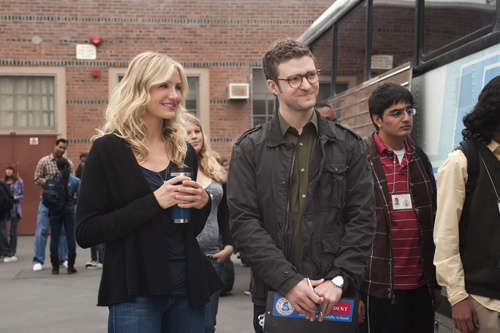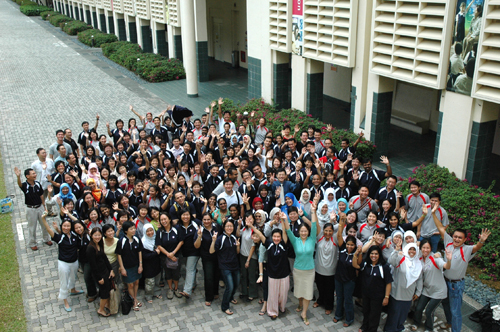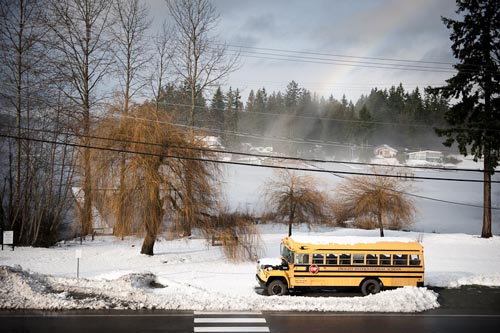
Κακός δάσκαλος is a new comedy starring Cameron Diaz as a totally inappropriate teacher, Elizabeth Halsey. As the movie begins, Elizabeth is not excited about the first day of school. Nor is she interested in putting her students first. Truthfully, Elizabeth’s primary focus is finding a guy who’s going to take care of her. To find out whether Elizabeth achieves her academic goal in the film, you can study further at Areyouabadteacher.com. But right now, I want to focus on the good, αυτό είναι, good teachers like one or two I was fortunate enough to have.
What makes a teacher good enough to create an effective learning environment? More education? More professional experience outside the classroom? More ability to connect with kids? I was honored to have the opportunity to speak about the importance of the teacher and other matters with one of the world’s most respected experts in the area of teacher training and teacher-student relationships, Ο καθηγητής Theo Wubbels. Professor Wubbels is President of the Netherlands Educational Research Association, Dean of the Undergraduate School and Associate Dean for Academic Affairs at Utrecht University.
What difference can a good teacher-student relationship make to student achievement?
We have developed a model to describe that relationship and we did a large amount of research in which we discovered that the more teachers are in control, the more students are able to learn. The more teachers are affiliated with students, the more students are motivated. So a good mix of control and affiliation is very important for students to learn and to enjoy education.
What kind of educational system do you believe will permit a country to have the people skills needed to compete globally today?
That is of course a very big question because a system can have so many different characteristics. One of the important things is to look at the most competitive countries in terms of education. Look at Finland for example. I think one of the most important characteristics is the level of training of the teachers. Στη Φινλανδία, all teachers have been taught at universities. Teachers are selected to enter the teacher education process. Now that is completely different from the system in my country, where most teachers are trained at higher vocational institutions. The Netherlands does well in international rankings, but Finland is ranked much higher. We believe that the most important characteristic of an effective system is the level of training of the teachers.
The second important factor is how comprehensive are the schools. In The Netherlands, we separate students in secondary education into several streams (unlike countries where students remain together throughout the secondary education process). It seems that separating students helps in getting better student achievements for more able students, but is detrimental for less able students.
Do teachers in the Netherlands believe they are valued?
Teacher compensation in the Netherlands is not high. It’s probably in the middle of what is considered very good compensation. Our research indicates teachers are not satisfied about this, but our research also indicates that our compensation is much better than in many other countries. For teachers, being rewarded professionally is more important than a high salary.
What are your views on testing in The Netherlands?
We are moving more in the direction of national testing. There is more emphasis on how students achieve in math, writing and reading, but there is also a lot of criticism. We start testing students at the age of 4 and we have a long tradition of national exams at the end of secondary education; but that is much broader than student achievement in the basic skills. We have national examinations for not just math and reading, but also in history, geography and all the topics that are taught in our system. It is fairly standardized. What we also do is we test for things like democratic citizenship. Now that is not a national test, but we have a national questionnaire on which we assess how much students have learned about citizenship. We think that is very important, but it is not part of the main examination. There is a lot of criticism about standardized testing because it doesn’t cover everything that is important in an education system. When you have more emphasis on testing, teachers will teach for the test and neglect other things that are also important. Για παράδειγμα, κοινωνικές δεξιότητες – I think everyone in The Netherlands thinks this is important, but because of the emphasis on testing, teachers might not do enough of that.
Is there enough emphasis on technology in school curricula currently?
I think in The Netherlands, the use of technology in schools is under developed. Primary schools have an interactive white board but that’s used mainly for presentation and not for improving the interaction between teacher and students. The use of computers and technology is not a central part of the curriculum. What students do not learn is how to be critical when it comes to using things found on the internet. Για παράδειγμα, understanding what is really valuable on the internet is not being taught well enough. I see similarities between our problems and what is happening in the US. Technology is being used in a superficial way versus helping to make interaction better and make students more critical.
How large is the problem of the internet generation gap between teachers and students?
There is a huge gap between teachers and students in terms of how knowledgeable they are about Facebook and social media. In my country, social media is hardly used in education. The teachers and students live in a different world. Exposure of students to computers, television and social media makes it difficult for teachers to keep students focused. A teacher explaining something in a classroom can seem so boring compared to what students are doing in their day to day lives. The solution has to be that teachers move in the direction of more computer use. Teacher education institutes will have to work hard on this. Technology development is important and certainly offers us promise for the future.
Is increasing academic competition negatively impacting the emotional well-being of students?
I do not believe that pressure and stress is yet considered a big problem in the Netherlands. What is considered a problem is the number of activities that students undertake. I don’t think we have intellectual pressure issues in The Netherlands. Σχετικά με 45% of our students go on to higher education. Our system is different from yours. In my country, we decide early as to whether you can go to higher education or not. By the age of 13, we have already separated students in different streams, and only two of the four streams get access to higher education; so decisions are made much earlier. Only students in the higher streams are allowed to go on in the system.
The standardized testing focuses on the core subjects. What about the other areas and skills that these tests do not assess?
I think that is a problem. Studies like PISA put us on a road to assessing the basic skills. There are many other things that are very important. Για παράδειγμα, social skills and citizenship, which I mentioned before, are very important, and these studies do not take that into consideration. We reduce education to reading, γραπτος λογος, and arithmetic, and this is bad development.
Any last points or world wisdom you would like to add on educational excellence?
I think the most important thing is the quality of the teachers, and the relationship between the teacher and the student is critical to create the right conditions for a good education. An education system cannot pay enough attention to that. Teachers should be trained very well and they should be respected as professionals. They must be assessed based on whether they work according to professional standards, and if they do that, it is much more important than meticulously measured achievements. Education can only live when you have investment in teachers and their work.


C. M. Rubin είναι ο συγγραφέας των δύο πολυδιαβασμένα online σειρά για την οποία έλαβε ένα 2011 Βραβείο Upton Sinclair, «Η Παγκόσμια αναζήτηση για την Παιδεία» και «πώς θα Διαβάστε?"Είναι επίσης συγγραφέας τριών βιβλίων με εμπορική επιτυχία, Συμπεριλαμβανομένων Η Ρεάλ Αλίκη στη Χώρα των Θαυμάτων.





Πρόσφατα σχόλια